AVPSummit, Trieste 2023









 By Deborah Young
By Caren Davidkhanian
By Deborah Young
By Caren Davidkhanian
The second Audio-Visual Producers (AVP) Summit ended last Friday after three days of panels and

discussions tackling topics from the use of artificial intelligence to Continues next page

‘Production is ramping up around the world' is the upbeat message from Hollywood and Europe.

Deborah Young, July 25, 2023
Sony Pictures Entertainment chairman and CEO Tony Vinciquerra and Eagle Pictures president Tarak Ben Ammar, two
film industry veterans whose companies share distribution links, swapped ideas at a lively Continues next page
Venice’s long-awaited line-up for the 80th anniversary is out, and it promises to be the culmination of a trend that has been developing over time: a face-off (of sorts) between smart, top-quality American films (there are five in the main competition alone) and the finest Euro art house titles, with the rest of the world providing the spices. And more Italian movies than ever before, six of them competing. One wonders how much politics there is in standing so many local directors (who include strong and well-known contenders like Matteo Garrone and Saverio Costanzo) against the likes of Michael Mann, Bradley Cooper, Sofia Coppola, Ava DuVernay and David Fincher. Not to mention new films from auteurs Luc Besson, Michel Franco, Yorgos Lanthimos, Pablo Larrain, the Polish directors Agnieszka Holland and Malgorzata Szumowska and Japan’s Academy Award winner Ryusuke Hamaguchi.
One thing no one was counting on, of course, was the SAG-Aftra Continues
FIRESIDE CHAT (Continued)
encounter at the second AudioVisual Producers (AVP) Summit in Trieste, Italy, last Friday.
Moderated by The Film Verdict’s president and publisher Eric Mika, the conversation unfolded as an amicable “Fireside Chat” between long-time friends who are also industry insiders and provided one of the highlights of the three-day summit.

Though the summit was primarily focused on television and attended by top production executives from RAI, Mediaset and other Italian broadcasters, this second edition included an ample French and American film presence that presaged an enlarged international focus at future meets. Under the aegis of Ministry of Culture undersecretary Lucia Borgonzoni, it was a highly professional event that still retained an intimate feeling, organized under the direction of Roberto Stabile, the head of Special Projects at the ministry’s Direzione Generale at Cinecittà.
Although the participants’ own informal rules of engagement precluded Vinciquerra discussing the hot topic of the moment, the Hollywood actors’ and screenwriters’ strikes, it was an elephant in the crowded conference room that couldn’t be ignored.
“We are very dismayed by the strikes,” he said, strongly refuting. cont' p. 11
Entertainment innovative methods to get indie production projects financed and off the ground, the production of series and films for a global audience, the effects of the platforms on product quality, the difficulties faced by Italian producers in the US.

The AVP Summit was organized by Cinecittà for the General Direction Cinema and Audiovisual of the Ministry of Culture (DGCA-MiC) in association with the Italian association of audiovisual producers (APA) and with the support of the Ministry of Culture (MiC), the Italian Trade Agency (ITA), the region of Friuli-Venezia Giulia, Promo Turismo FVG (the agency that promotes the northeastern Italian region of Friuli-Venezia Giulia as a tourist destination), and the FVG Film Commission. Partners included the Motion Picture Association, the Producers Guild of America, the French National Center of Cinema (CNC), and Unifrance.
Lucia Borgonzoni commented on the importance of the AVP Summit for the Italian film and audiovisual industry and said a stronger audiovisual industry would make Italy more competitive. “This is the way forward,” she said.
That the AVP Summit would be interesting was immediately clear at the kick-off panel on “The Producer’s Role” at Trieste’s beautiful Miramar Castle last Wednesday.
The panel, moderated by Cattleya founder Riccardo Tozzi, saw the heavy weight participation of Eliseo Multimedia founder and artistic director Luca Barbareschi, Bona Fide Productions’ Albert Berger, LUX Vide CEO Luca Bernabei, Mediawan CEO Elisabeth d’Arvieu Bessiere, and The Walt Disney Company Italia country manager Daniel Frigo.
At the panel, Barbareschi vented Continues next page
his frustration with the difficulties faced by Italian producers in the US while, he said, American producers were being given the “red-carpet treatment” in Italy. He blamed what he defined “a socialist law from the Seventies,” and claimed the Italians undersell “what good we have” to the Americans.
Barbareschi also blamed the frequent changes of government in Italy and said the industry should be helping indies with tax credits and such, instead of concentrating on the big players. He said he found it hard to explain to the Americans that politics play a major role in Italy. “Certain governments,” he said, “have always favored certain producers, regardless of merit, thus lowering the quality of the output.”
Rai Cinema CEO Paolo Del Brocco, on the other hand, highlighted the loss of quality on the platforms, saying that their original productions were “on the average ugly. The characters lack depth and so do the stories, but that’s understandable. As Nanni Moretti put it, they have to talk to 190 countries so they end up having to standardize taste.”
Berger pointed out the problems faced by “artful films,” thanks to
“dismal” marketing and a lack of opportunity to be screened in cinemas. “Possible solutions,” he said, “would be to have more local cinemas geared toward local film fans as well as more international partnerships ” Frigo disagreed, saying “the marketing is as good as it has ever been and suggested that the culprit may be in the fact that there is too much competition.”
Valhalla Entertainment founder Gale Anne Hurd (TheWalking Dead) lamented the lack both of access to international films for most consumers and of coproduction agreements between the U.S. and European countries, forcing many producers to look for partnerships in the UK and Canada.

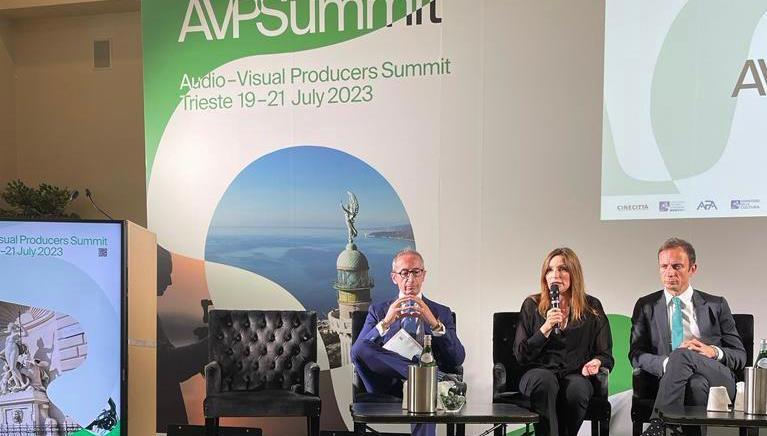
In another panel, Media Res International’s Lars Blomgren, Cattleya CEO Marco Chimenz, Amplify Pictures CCO Rachel Eggebeen, France Télévisions Mourad Koufane, CAA Media France’s Benjamin Kramer, and Palomar CEO Nicola Serra discussed with MIA Director Gaia Tridente the new financing models to get projects off the ground.
Continues next page
actors’ strike, which is likely to throw the paparazzi huddled around the Lido’s hotel boat docks into despair. More important is the question of how the probable absence of stars this year will put a dent in promoting all those U.S. titles. Yet apart from Luca Guadagnino’s Challengers, which was withdrawn by the production company as the opening night film (it was replaced by Comandante directed by Edoardo De Angelis), there seem to have been no second thoughts in accepting an invitation to the Lido.
But there are other reasons to think that the festival’s 80th birthday could mark a turning point in the smooth sailing and growing worldwide acclaim it has enjoyed under two cultivated gentlemen, Biennale president Roberto Cicutto and Biennale Cinema director Alberto Barbera. Earlier this summer the undersecretary of Culture, Vittorio Sgarbi, told journalists that the center-right coalition now leading the Italian government would not reappoint those holding the Biennale’s top jobs for another four-year term, a suggestion that cultural minister Gennaro Sangiuliano has not confirmed, however. This would be a good year to look around and take stock of how far the festival has come, while we await developments.
Amplify’s Eggebeen said her company’s plan was to “fully indie finance” using the Amplify model of “enhanced acquisitions” – in other words, fully finance, develop, and approve a project for production before offering it for sale – and some combination of pre-sales. She said, “The goal is to get things made quickly, innovatively, and in a way that we have agency of how they get made.”
Chimenz pointed out how the streamers have become more cautious in spending, opening up the possibility for the producers to retain the rights. He said this was a very desirable development as it will allow the production companies to achieve long-term growth.
Another positive development that has come out of this, Chimenz said, is the revival of the distributors, which had recently been seen as belonging
to the past, but now “look like they are part of the present and the future.”
At the Spotlight On Amazon event, Prime Video’s head of scripted, Davide Nardini, pointed out a possible, unintentional outcome of a protracted SAG-AFTRA strike in Hollywood: new opportunities for international talent that would move in to fill the void. Nardini was quick to add, however, that he was merely pointing out a possibility and that Amazon was in no way planning to change its strategy.
“What Amazon has changed in Italy is its editorial line, moving away from scripted shows for specific audiences to shows with a wider appeal,” Nardini added.
At Spotlight on Mediaset, Italy’s main commercial broadcaster Mediaset’s head of drama, Daniele Cesarano, said that the broadcaster had been working diligently since 2016 to bring back Mediaset
to its central position in the Italian audiovisual industry. In doing so, he said, “Mediaset had experimented with both main stream and “edgy” offerings, but the latter did not work out as expected.”

Cesarano said Mediaset viewers were “fundamentally conservative” and although a third of the broadcaster’s earlier output had been edgy and experimental, its lack of success had dictated a return to more mainstream productions, which was the “more rational choice, although in recent years TV production everywhere has gone back to being cast-oriented and plots have ceased being innovative.”
The American Producers present lamented on and off stage of being ”squeezed” by the streamers and the inability to own the Rights to their own productions. The contrast between the more optimistic Europeans and the pessimism of the American producers. permeated all the panels
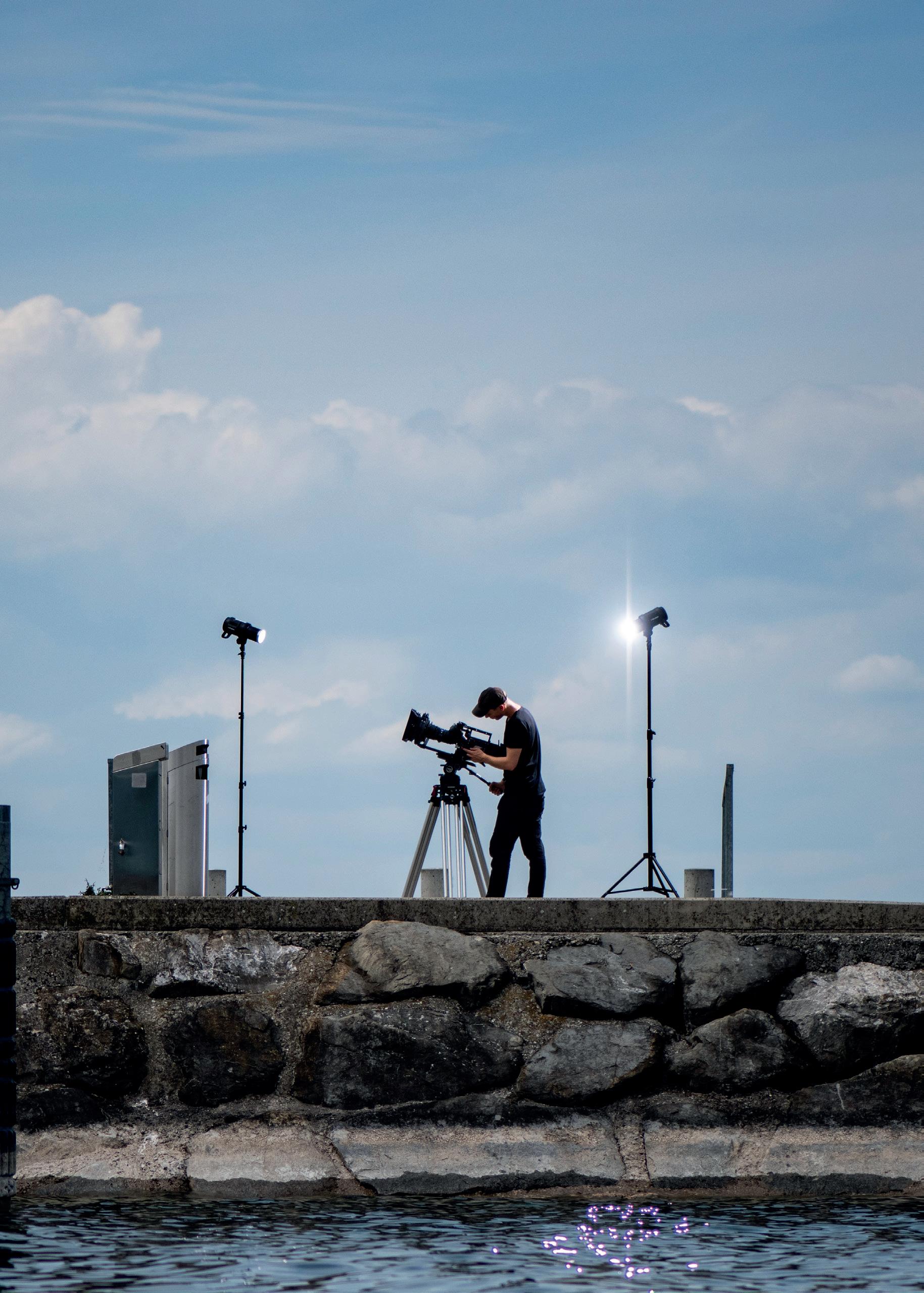
At the close of the three-day Audio-Visual Producers Summit in Trieste, The Film Verdict interviewed the man behind Italy’s global presence: Roberto Stabile; Head of Special Projects, Direzione Generale at Cinecittà, Ministry of Culture, Italy, Head of International Relations, Anica and Director of AVP Summit by
Caren DavidkhanianTFV: The Audio-Visual Producers Summit (AVP) took place in Trieste this year for its second time. What was the motivation for the Summit and what were the expectations for the organizers and the attendees?
STABILE: The goal of the Summit was extremely simple and equally ambitious.
Usually, we all get very busy during festivals and markets.There are films to see, red carpet events, parties, and conferences to attend, and contracts to sign. In short, there are many commitments and distractions and no time to sit around a table, look each other in the eyes, and talk about market trends or the common problems we all face in the industry and analyze them and try to understand them and, if possible, come up with ways to not have to endure them passively.
The goal of the Summit
was to fill this gap and become the place where the highest levels of industry representatives met in a sort of a think tank, a place where they could meet in peace and without any distractions for three days and take stock of the situation – a sort of a health checkup for the industry.
One thing struck me very much: many of the participants told me that in Los Angeles it would be
very unlikely – almost impossible – for all of them together to find the time and a way to sit in the same room. This was one of the core reasons for the Summit.
TFV: The AVP Summit managed to secure a vast array of European and Hollywood leadership to attend this three-day event.What was the attraction for the CEOs of the major studios to attend the Summit in Trieste?
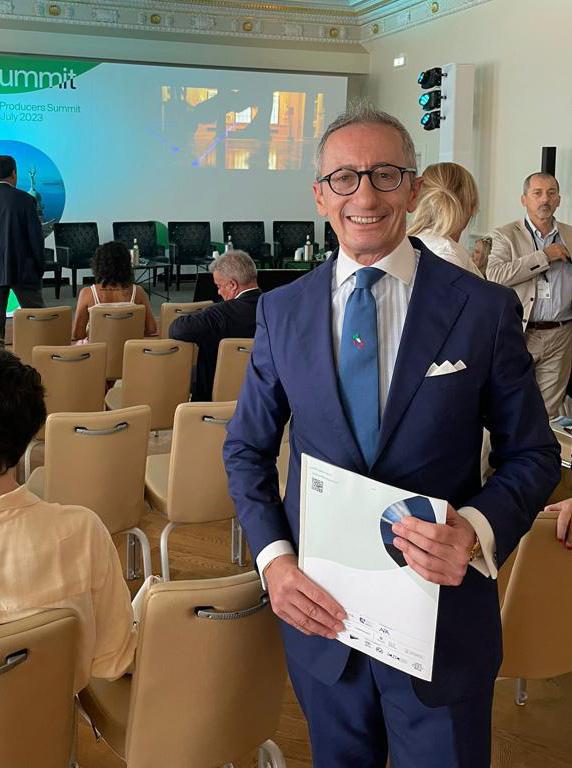
STABILE: The greatest attraction offered to the CEOs of the most respected companies was the possibility for them to meet their peers in a very informal setting where everyone participated for the same reasons. We gathered people who, in other contexts, it would be difficult to bring together back home.These were people who rarely have three days off on their calendar and who seldom allocate more than 15 minutes of their time to an appointment.
The Summit rendered everyone more accessible and available, stopped the watches, deleted schedules, and brought the individual participants to the same level.
TFV: There was a wide array of panels that were productive and interesting. In your opinion, what was the general theme and take away from each panel? I also understand there were several behindthe-scenes, closed-door meetings that took place amongst the MPA and European leaders.Any insight that you can provide into those meetings?
STABILE: The topics of discussion were varied and all extremely current. Producers and creatives had the opportunity to analyze the ways in which the producers’ role has changed in the past few years with the advent of streamers, which has led to a greater number of distribution outlets, but also to soaring production costs.The participants then analyzed how Italian production companies had invested strongly in their own editorial departments, developing projects suitable for the global public and able to compete on international markets at a time of great ferment.These and many other topics were discussed at the AVP Summit in Trieste, a true platform that made it possible for the participants to discuss not just the current productions but also what will be the business of the future, encouraging dialogue, the exchange of visions and perspectives, and fostering synergies and shared policies among the various leading industry figures.
There weren’t many meetings behind closed doors and the ones that there were served only to quickly analyze the most delicate issues and to identify the topics of discussion for the next edition.
TFV: As you know, Hollywood is going through a major shut-down due to the strike. How do you feel this will affect the European or international cinema industry? Do you expect to see the strike impact theVenice Film Festival? And do you think the strike is an opportunity for European distributors to fill the content gap and sell more European and international films?
STABILE: The strike in Hollywood concerns and worries everyone.This too was talked about and analyzed in one of the panels and the conclusion was that this phenomenon is a product of the US system and that it can’t happen, let’s say, in Italy because here rights are managed in an entirely different way.
It was not assessed cynically as a situation where a crisis for you can be an opportunity for me. No one
thought of offering English-language actors and screenwriters to US producers or, as you asked, using it as a pretext to export more European products. The problem was simply analyzed and its impact was evaluated.
The community spirit prevailed over business considerations, and this is something very interesting and positive. Fortunately, I think this will not have much of an effect on the upcoming Venice festival. Of course, there will be fewer stars on the red carpet, and there will probably be some room to admit some important films from emerging countries. But I am sure that Hollywood will be well represented in Venice.
TFV: This year and last, there is a real noticeable difference in Italy’s presence on the world stage. It seems that Italy is “stepping up” its presence globally with events from Japan to China and South Africa, and you just returned from Bogotá. What’s going on? And what is Italy’s strategic mission?
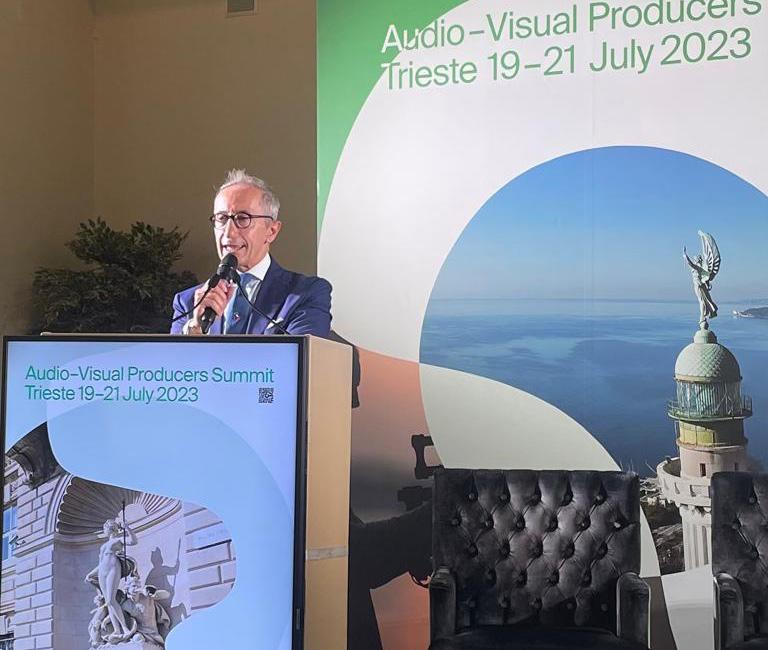
STABILE: Recently, and with the decisive push of the new government, we have worked hard with an eye to internationalization.
This is something that was also noted at the Summit, where top figures of international production and distribution companies pointed out Italy’s role as a lab for the cinema industry and an unavoidable bridge between Europe and the United States, not just because it offers marvelous locations and skilled local workers, but also thanks to tax credits that are better in Italy than in other European countries. These are all things that make Italy an ideal place to shoot a film and generate millions of euros for the satellite industries across the country, benefitting tourism and creating new jobs.
Moreover, our new initiatives, starting with Italian Screens (which The FilmVerdict has already covered), the Film Distribution Fund that supports foreign distributors with up to 50,000 euros for theater and 15,000 euros for platform distribution, or the fund for minority coproductions have allowed us to increase the presence of our industry and our productions abroad in an effective and incisive manner, consolidating our presence in traditional and mature territories and also venturing in newer and up-to-now unexplored ones.
TFV: Will we see a year 3 summit? And if yes, do you expect it to remain in Trieste or move to another beautiful Italian city?You must be very proud of this successful event.Any particular moment that stood out for you?
STABILE: There will certainly be a third edition of the AVP Summit and, hopefully, many more to follow.
We will announce the dates in June to make it easier for our American guests who usually go on holiday in July, and we will choose another location in our peninsula. One of the characteristics of this new event is that we choose a different location each time, placing our bets on gems that lie outside major tourist circuits and that have not yet quite established themselves as film locations.
We are already considering a couple of possibilities, just as we have started reflecting with our partners on the topics of discussion for the next edition.
The moment of pride, though strongly felt, lasted briefly as my thoughts went to the next edition, which in terms of location, guests, and topics of discussion, will have to meet the expectations and follow along the growth trend that has been with us in Matera and in Trieste. I also feel great gratitude, first and foremost, toward my team that supported me in this venture and toward our institutional partners.The Summit was born from a collaboration with PGS, which has proven to be a solid fellow traveler, and starting this year, MPA, the Hollywood studios, and our French cousins with CNC and Unifrance.
I must also mention Trieste, this Italian gem of the Austro-Hungarian Empire, which played its part with verve and discretion.
The moment that sticks with me for sure was the opening night at the Miramar Castle.The moments that were shared with the work group and all the guests remain in my heart.
Thank you, Trieste, and thank you,The FilmVerdict, for having been with us in person.
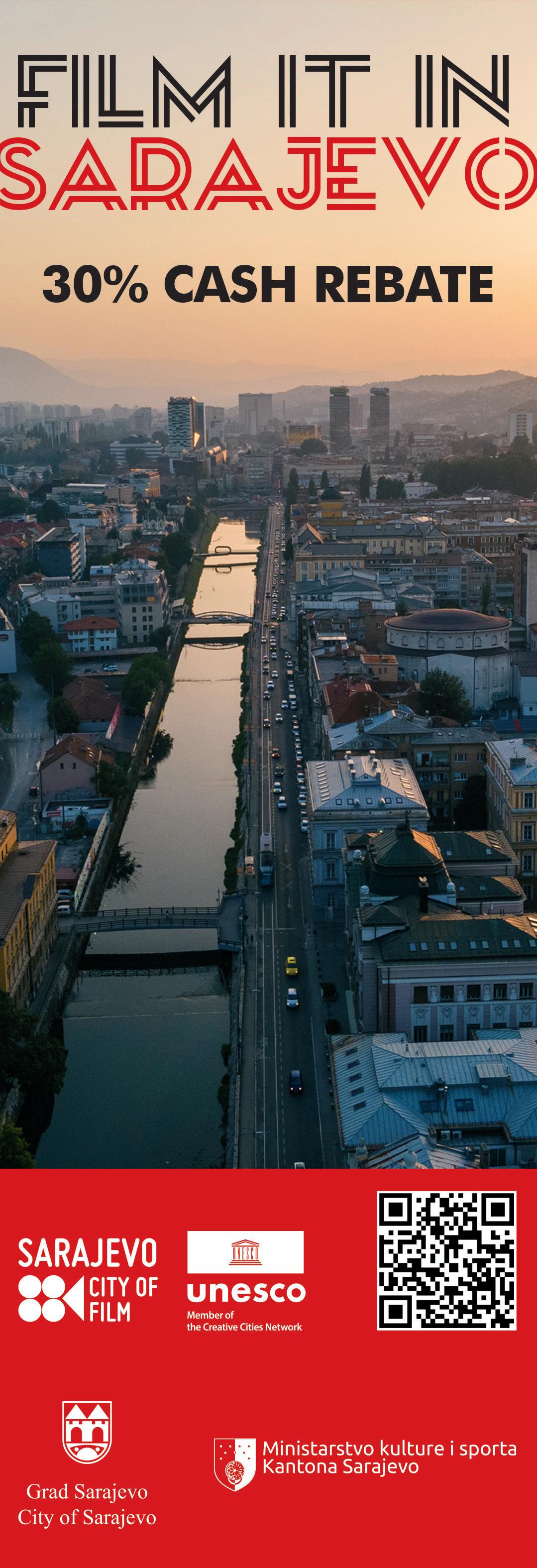
On the final night of the AVP Summit, MAXIMO Awards were handed out to Italian audio-visual productions for TV and for streamer distribution between January 2022 and April 2023. The winners were:
Best Producer:
Roberto Sessa, CEO Picomedia The Sea Beyond / Mare Fuon
Best Series:
The Law According to Lidia Poët / La Legge di Lidia Poet directed by Matteo Rovere and Letizia Lamartire and produced by Groenlandia

Best Film: Still Time / Era Ora directed by Alessandro Aronadio and coproduced by Bim Distribuzione, Palomar, and Vision Distribution

Best Actor: Piero Paolo Spollon Doc produced by Rai and “Che Dio Ci Aiuti” produced by Lux Vide
Best Actress:
Elena Sofia Ricci
I Fiori Sopra l’Inferno – I Casi di Teresa Battaglia coproduced by Publispei and Rai Fiction
Best Director: joint winners
Stefano Lodovichi Christian
coproduced by Sky, Lucky Red & Newton Connect
And Elisa Amoruso and Julian Jarrold
The Good Mothers Disney + produced by Wildside and House Productions
Best Creator: joint winners
Andrea Di Stefano
Bang, Bang Baby
Amazon Original
produced by Fremantle’s The Apartment & Wildside
And Elena Bucaccio
Buongiorno, Mamma! Mediaset
produced by LuxVide
Excellence Friuli-Venezia Giulia: FastFilm CEO Maurizio Tini, Porta Rossa
coproduced by Rai Fiction and Garbo Produzioni
VERDICT: Actor Lakeith Stanfield brings human heart to Justin Simien's mediocre corporate horror comedy 'Haunted Mansion'.
William Bibbiani, July 25, 2023
The Walt Disney Corporation has been transforming amusement park rides into mediocre movies ever since D.J. MacHale’s mostly-forgotten Tower of Terror back in 1997. That trend continues with Justin Simien’s Haunted Mansion. This supernatural comedy is occasionally amusing, occasionally heartfelt, and occasionally spooky, but mostly it’s a generic experience, designed to appeal to families without actually affecting them very much.
It’s tempting to feel sorry for director Simien (Bad Hair) and screenwriter Katie Dippold (Ghostbusters), who are tasked with telling a scary story that’s never allowed to be scary, lest the film frighten kids away from the beloved Disneyland attraction cited in the title, one that’s been packing them in since 1969. The filmmakers are trying to turn the ride’s well-known iconography and well-documented mythology into a movie that could startle the kids and amuse the adults, but only the impressive production design, a
handful of creepy set pieces, and Lakeith Stanfield’s genuinely tortured performance suggest how good this film might have been.
Stanfield plays Ben, who used to be a scientist, but after the death of his beloved wife Alyssa (Charity Jordan, They Cloned Tyrone) he’s an emotional wreck, obsessed only with finding proof of the supernatural. Or at least he was. After years of searching with his specially-designed camera he’s given up hope, and now makes a living giving ghost tours of New Orleans to annoyingly chipper visitors, yelling things at them like “Ghosts don’t exist! Life is dirt! We’re all dirt!”
Ben’s life turns around when Father Ken (Owen Wilson) invites him to a haunted mansion, which the new owners single mom Gabbie (Rosario Dawson) and her perpetually-overdressed young son Travis (Chase W. Dillon, The Underground Railroad) Full Review


Fireside chat cont’d
Broaching the subject of theatrical release vs. streaming,Vinciquerra noted it was hard to turn a profit on films like Indiana Jones and the Dial of Destiny which cost a reported $300 million, a price tag largely elevated byVFX costs. On the less expensive side of production, there are the specialty markets covered by Sony Classics. But films whose production costs range around $8 to $12 million “we can’t afford to put in theaters” and are earmarked for streamers.
Vinciquerra noted, however, that Sony has no interest in creating a video service which would compete for subscribers with others of its kind; the company concentrates instead on being a strategic supplier, a so-called “arms dealer. ” Ben Ammar called Sony “the most stable of all the studios."a claim backed up by its exceptional grosses this year led by Spider-Man: Across the Spider-Verse, which is expected to gross $2 billion “without getting to China.” The film made over $7 million in Italy, a market that was hit especially hard for three years by the pandemic.Vinciquerra and Ben Ammar see this dark period as being over beginning this year, with year-end box office estimated to come close to 2019 figures.
In fact, despite the long shadow of the strike in Hollywood and its effect on production, the overall gist of their chat was surprisingly positive and optimistic.
“I think Italy is back,” said Ben Ammar, who called the quality of its fiction “unbelievable." He recently announced he will invest between €40 and €50 million euros building a new production hub to solve
the perennial problem of the shortage of sound stages in the country that is blocking investment in new production. Saying the new studios could be called Cinecittà 2, he foresees them becoming operational by summer 2024.
Among the titles Eagle Pictures is releasing in Italy as part of its new distribution deal with Sony are Lyle, Lyle, Crocodile and The Equalizer 3.
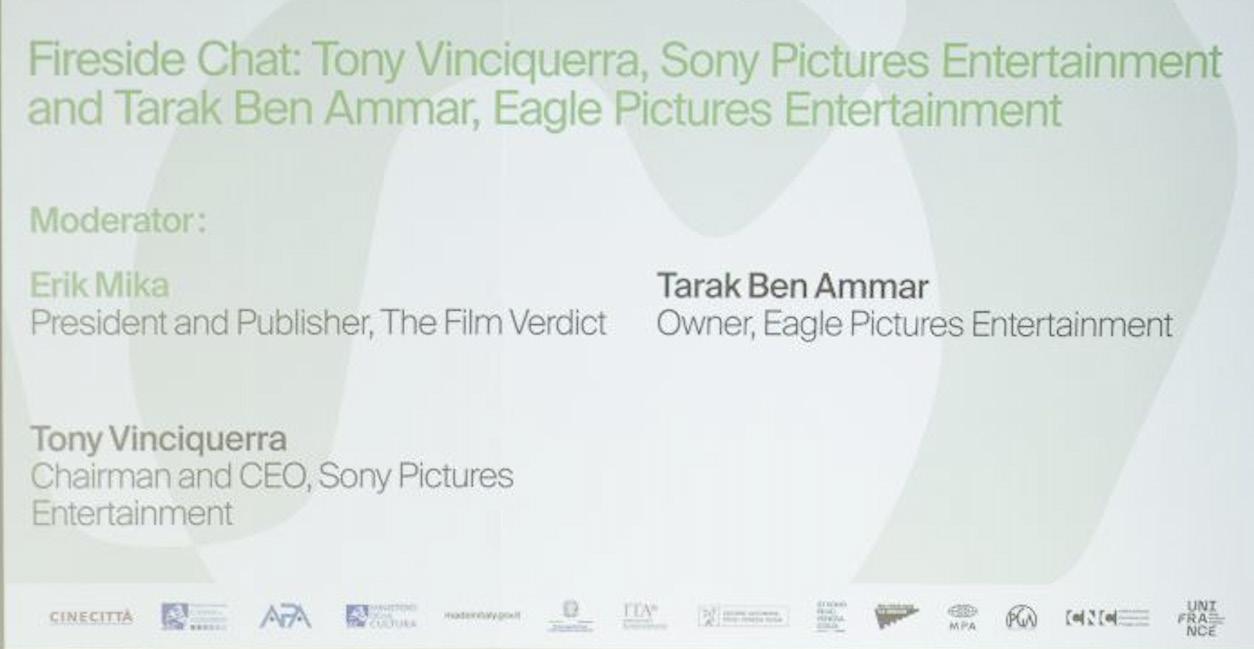
Asked by Eric Mika about how he sees the Saudi market these days, the Tunisian-born producer and distributer noted that 70% of the country’s population of 36 million is under 25 and has a “hunger” for fresh entertainment product.“They watch five, six, seven pictures a week” Depending on political stability and censorship, he believes Saudi Arabia will lead the region in film and TV.
A recurrent topic was the globalization of IP (intellectual property), like Sony’s oft-remade My Best Friend’s Wedding in a new Italian remake. Ben Ammar also plans to make English language versions of classic Italian comedies like Marriage Italian Style and Perfect Strangers.
Then there is Sony’s new India merger, in which Sony Pictures Networks India and Zeel have agreed to merge to create a broadcast giant.Vinciquerra highlighted how Sony Music Entertainment Japan and Sony Pictures are two of the parent organizations of the wildly successful Crunchyroll series of Japanese anime, some of which will cross over to live action versions.And there is the example of TheCrownTV series, which Sony Pictures Television coproduced with Left Bank Pictures for Netflix. “Production,” Vinciquerra noted,“is ramping up around the world.”

Films
THE PROMISED LAND
Directed by Nikolaj Arcel
Denmark, Germany, Sweden
DOGMAN
Directed by Luc Besson
France
LA BÊTE
Directed by Bertrand Bonello
France, Canada
HORS-SAISON
Directed by Stéphane Brizé France
ENEA
Directed by Pietro Castellitto Italy
MAESTRO
Directed by Bradley Cooper USA
PRISCILLA
Directed by Sofia Coppola USA, Italy


FINALMENTE L’ALBA
Directed by Saverio Costanzo Italy
COMANDANTE
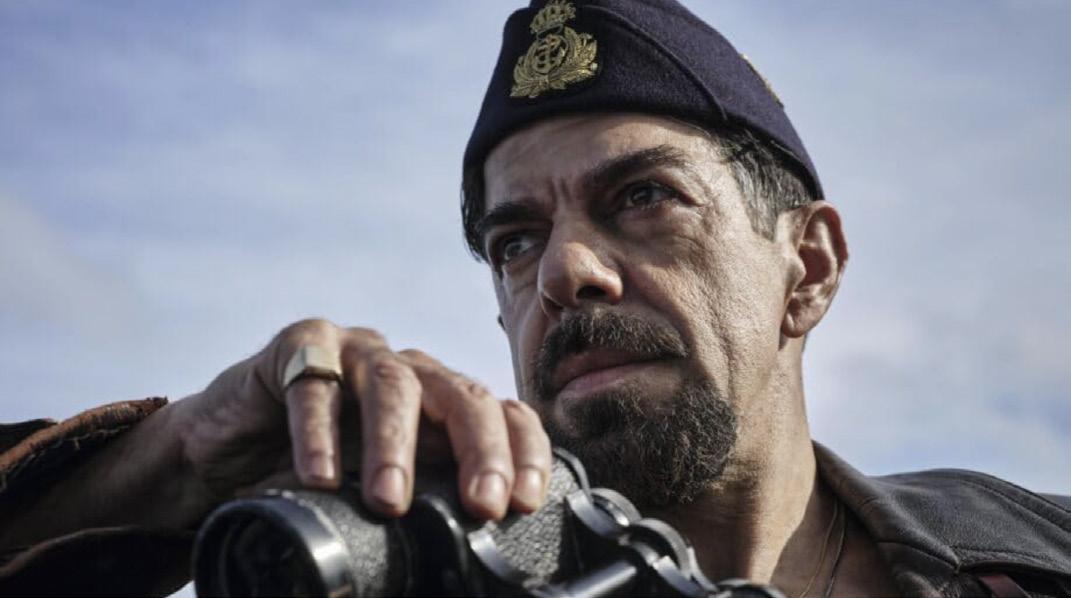
Directed by Edoardo De Angelis Italy
LUBO
Directed by Giorgio Diritti
Italy, Switzerland
ORIGIN
Directed by Ava DuVernay USA
THE KILLER
Directed by David Fincher USA
80th Venice Film Festival Official Poster in Competition Priscilla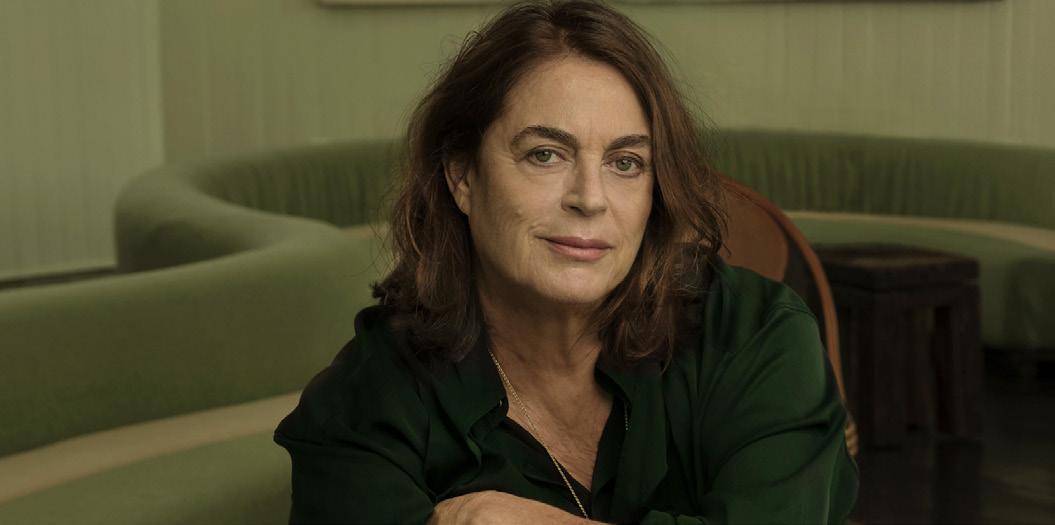
MEMORY
Directed by Michel Franco
Mexico, USA

IO CAPITANO
Directed by Matteo Garrone
Italy, Belgium
EVIL DOES NOT EXIST
Directed by Ryusuke Hamaguchi
Japan
THE GREEN BORDER
Directed by Agnieszka Holland
Czech Republic, Poland, Belgium
DIE THEORIE VON ALLEM
Directed by Timm Kröger
Germany, Austria, Switzerland
POOR THINGS
Directed by Yorgos Lanthimos UK
EL CONDE
Directed by Pablo Larraín Chile
FERRARI
Directed by Michael Mann USA
ADAGIO
Directed by Stefano Sollima Italy
WOMAN OF
Directed by Małgorzata Szumowska, Michał Englert
Poland, Sweden
HOLLY
Directed by Fien Troch
Belgium, Netherlands, Luxembourg, France
For Complete Line Up, click here
The Board of Directors of the Locarno Film Festival has approved Maja Hoffmann, founder of the LUMA Foundation. Her name was put forward by the appointment committee tasked with finding a successor to Marco Solari, whose members are Edna Epelbaum and Francesco Lurati, with Mario Timbal as coordinator. The committee had drawn up a short list of possible candidates, headed by Maja Hoffmann, who was approved unanimously by the Board of Directors.
Maja Hoffmann is now set to become the first woman to take on the role of president of the Locarno Film Festival. Departing president Marco Solari will assist Ms. Hoffmann during the transition phase, which will begin following the close of this year’s 76th edition of the event.
Maja Hoffmann thanked the committee and the Board of Directors of the Locarno Film Festival for having chosen her as designated president:“My thanks go to the appointment committee and the Board of Directors for the trust they have shown in me.After spending many years exploring and putting into practice a range of projects, both in Switzerland and abroad, I am pleased to be able to put my experience and knowhow at the service of the future of this prestigious Festival, and so help foster the development of culture in Switzerland. Locarno has always displayed a robust identity, which is vital to strengthening the positioning of the Festival internationally.”
For complete story, click here
Venice Line Up Continued from previous page (c) Annie Leibovitz•Eleonora Andreatta, Vice President, Italian Contents, Netflix
•Andrea Appella, copyright and new technologies advisor, Ministry of Culture, Italy
•Luca Barbareschi, Eliseo Entertainment
•Albert Berger, producer, Bona Fide Productions
•Luca Bernabei, CEO, Lux Vide
•David Bernad, producer
•Barbara Bettelli, attorney
•Tarak Ben Ammar, producer, Eagle Pictures
•Maria Pia Ammirati, Head of Drama, Rai
•Lars Blomgren, Head of International, Media Res
•Giovanni Bossetti, Manager for Italy, Non-Fiction, Netflix
•Dave Brown, Echo Lake Entertainment
•Daniele Cesarano, Head of Drama, RTI SpA, Gruppo Mediaset
•Marco Chimenz, Co-CEO, Cattleya
•Elisabeth d’Arvieu, CEO, Mediawan Pictures
•Nicola De Angelis, Co-CEO, Fabula Pictures
•Paolo Del Brocco, CEO, Rai Fiction
•Rachel Eggebeen, CCO, Amplify Pictures
•Marco Follini, journalist
•Daniel Frigo, Country Manager Italy & Turkey and Head of The Walt Disney Studios Italy
•Sean Furst, producer, Global Position Studios (GPS)
•Lucia Gervino, Head of Production and Post, A+E Studio
•William Horberg, producer
•Gale Anne Hurd, producer
•Arvand Khosravi, Head of Scripted Television Strategy, SVP
•Morad Koufane, Deputy Director of International Series, France Télévisions
•Benjamin Kramer, Co-Head, Media Finance, Creative Artists Agency (CAA)
•Gary Lucchesi, President, Lakeshore Entertainment
•Lori McCreary, CEO, Revelations Entertainment
•Eric Mika, CEO, The Film Verdict
•Ted Miller, head of Global Television, Creative Artists Agency (CAA)
•Melissa Myers, partner, WME
•Davide Nardini, Head of Italian Scripted Originals, Amazon Studios

•Marco Valerio Pugini, producer, Panorama Films
•Filippo Rizzello, Content Executive, Netflix
•Jay Roewe, Senior Vice President, Global Incentives & Production Planning, HBO /MAX
•Steve Saltzman, attorney
•Federico Scardamaglia, producer
•Nicola Serra, Co-CEO and producer, Palomar
•Roberto Sessa, CEO, Picomedia
•Danna Stern, Executive Producer, Global Content Executive
•Shelby Stone, producer
•Per Strömbäck, Swedish Games Industry
•Veronica Sullivan, Senior Vice President, Head of Global Production External Affairs and State & Local Government, NBCUniversal
•Riccardo Tozzi, President, Cattleya
•Gaia Tridente, Director, Mercato Internazionale Audiovisivo (MIA)
•Tony Vinciquerra, Chairman and CEO, Sony Pictures
Left to Right: Gary Lucchesi, David Bernard, William Horberg, Danna Stern, Nicola De Angelis, Lucia Gervino, Roberto Sessa By Caren Davidkhanian
By Caren Davidkhanian
Despite its beauty, excellent food, and history, which dates back to 1400 BC, the port city of Trieste is one of the relatively lesser-known Italian destinations By the second century BC, Trieste was under the control of the Romans, whose emperor Augustus built its first major harbor. After the fall of the Roman Empire, Trieste passed hands several times before falling under Habsburg control in the 14th Century. But its heyday arrived in 1719 when it became the main port of the Austro-Hungarian Empire and its population quickly increased 30-fold. At the end of World War I, however, Trieste was taken over by Italy as per the earlier Treaty of London on grounds that two-thirds of its population was Italian.
The nearby beautiful Miramare Castle, where the AVP Summit Opening Night Gala was held, dates to the days of the Austro-Hungarian Empire and was commissioned for Archduke Maximillian, the future, short-lived Emperor Maximillian of Mexico. In 1864, before the completion of the castle, Maximillian left for Mexico, where he was executed three years later.
The castle Miramare was apt for the opening night of the Summit Gala, since many productions have been shot in the castle: some of the scenes of the 2003 Rai Fiction miniseries Sorayaon the love story between the Shah of Iran and his second wife, Soraya Esfandiari and the Netflix Italian original series title Lift


Watch Lori McCreary, CEO, Revelations Entertainment, Per Stromback, Editor of Netopia, Stephen Salt, Head of International Entertainment Group, Fieldfisherm and Morad Koufane, Head of International Scripted Series, France Television on “why we should not be afraid of "AI wiping out mankind."

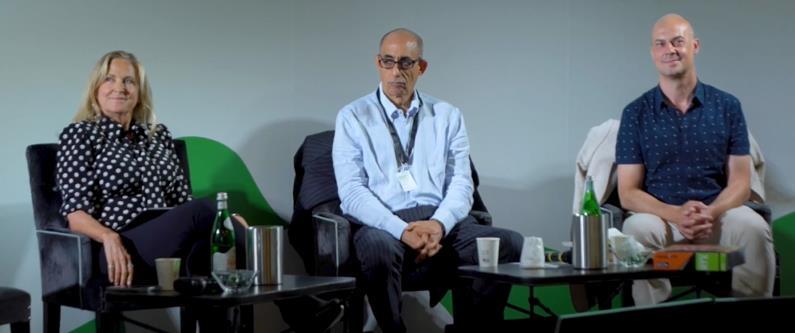

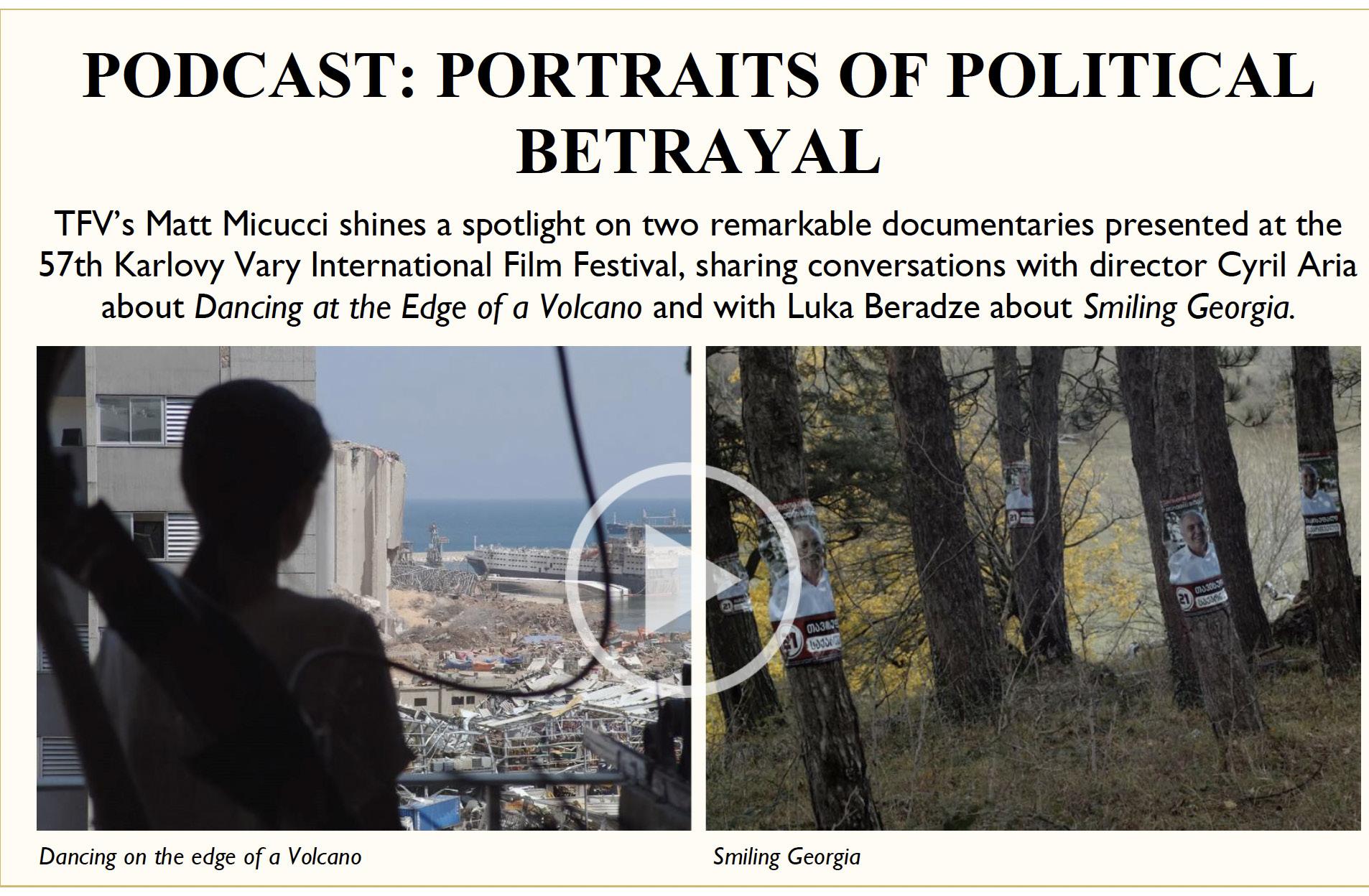
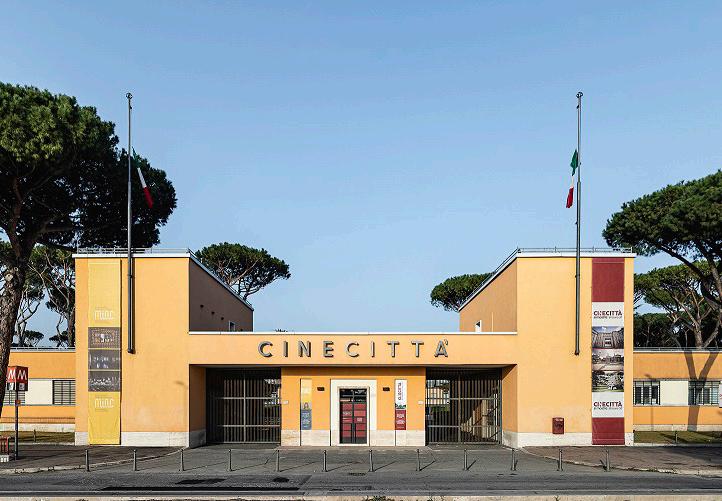
TheVenice Film Festival’s opening film The Commanderby Edoardo De Angelis,Enea, by Pietro Castellitto and Finalmentel’albaby Saverio Costanzo, are in the main category competing for the Golden Lion.
“Three films shot in Cinecittà in competition at the Venice Film Festival, directed by talented directors who are as different in style as they are similar in their ability to arouse emotions, is a reason of pride for our cinema and a satisfaction for those working on the project of creating an ever larger and more relevant Cinecittà,” stated Nicola Maccanico, CEO of Cinecittà.“It is also the confirmation of how stronger and more competitive studios contribute to making movies of greater quality and ambition. This can be seen as a first fantastic creative result of an industrial plan leading Cinecittà to grow and take our cinema to the international level it deserves. Congratulations to these films, filmmakers and productions, and a huge good luck.”
Cinecitta is the largest studio in Europe, with an area of 400,000 square metres (99 acres), and is considered the hub of Italian cinema. Filmmakers such as Federico Fellini, Roberto Rossellini, Luchino Visconti, Sergio Leone, Bernardo Bertolucci, Francis Ford Coppola, Martin Scorsese, and Mel Gibson have had productions at the famed studio. Over 3,000 films have had production at Cinecittà in its 80+ year history and at least 51 of them have won Academy Awards.
Prepare for the intergalactic spectacle as MILC Platform, in partnership with EPIC Games
MegaGrant recipients Gamble Entertainment Group & Ave One Entertainment, sets the stage for the sci-fi indie feature Mischief Upon Mischief.
This film, written & directed by LA-based filmmaker Ken Gamble, stars Jeffrey Decker, Jamie Gray-Hyder, Doris Morgado, Geno Segers, Randal Reeder, and Gamble himself. Get ready for a gripping tale of alien abductees’ return to earth, unfolding in the heart of a small town in the Pacific Northwest.

The MILC Metaverse, a virtual territory set to redefine digital film landscape, is breaking barriers for indie films. This groundbreaking platform brings the global film community together, offering an immersive and emotive experience like never before. And it’s not just any Metaverse – MILC Metaverse is the first accessible browser-based Metaverse built on Unreal Engine 5 + WebGL. With film, television, music, games, and art converging in this digital wonderland, the possibilities are endless.
MILC Platform’s partner, MUM (Mischief Upon Mischief), are the proud receipient of the Epic Games’ MegaGrants fund, which fosters creators,
For Complete Story, click here

